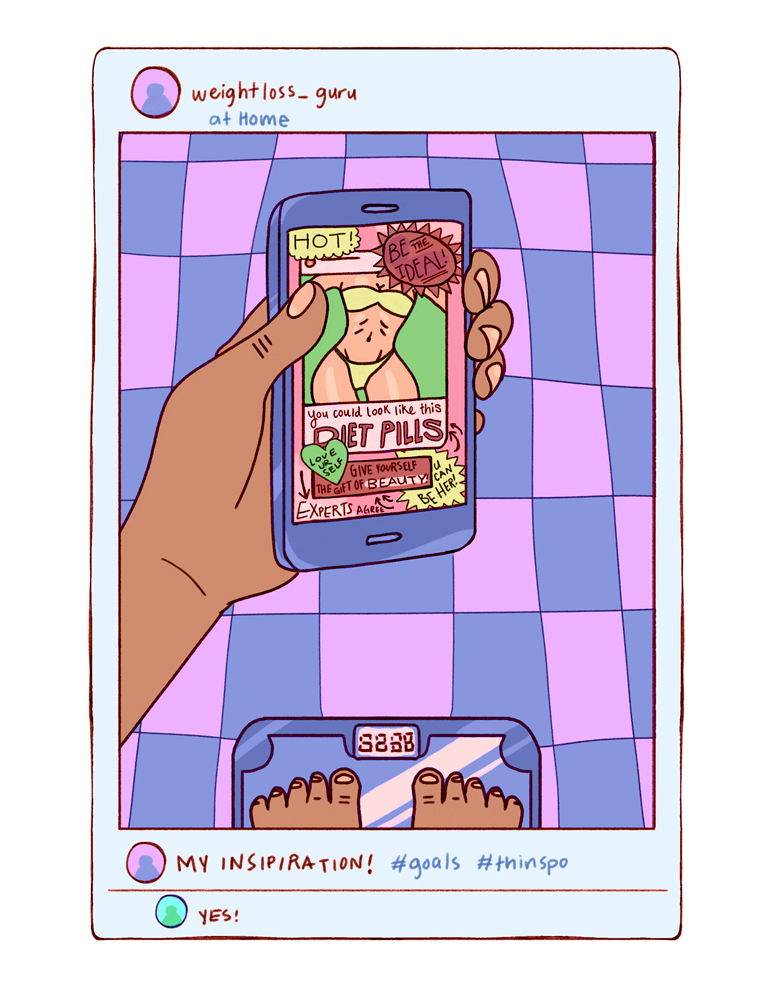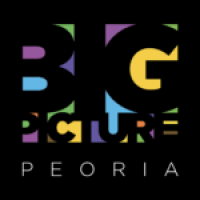
A Glance into Diet Culture
Diet culture is a discrete, hidden, and normalized system that simultaneously is a global cause for eating disorders and encourages a toxic body image. Simply put, diet culture praises thinness and promotes products that promise the “ideal body,” when in reality it is a way to profit off insecurities. It encourages us to worship unattainable figures. In turn, those promoting this system demote every other body type.
Diet culture primarily reaches audiences through social media. Popular influencers advertising detox teas, fad diets, juice cleanses, and more, ensuring their followers will lose body fat or drop ten pounds in a week. As a society we have normalized this dangerous behavior by constantly commenting on one another’s appearances. We also buy into these diets and products that are unsustainable, fostering a disordered relationship with food.
I personally tried the 1200-calorie diet, ultimately leading to a diagnosis of Anorexia-Nervosa and a relentless battle with my relationship with food. Scientifically, eating under such restrictions leads to weight loss by burning more calories than you consume. However, eating only 1200 calories is dangerously low for anyone over the age of four; and losing weight should be done in a wholesome way. I lost twenty pounds, but I also lost so much of my personality and ability to view food in a healthy way. Diet culture persuaded me to think that food had to be the enemy if I wanted to be thin. Once I lost the weight, I mistakenly believed I could finally feel confident.
We often associate health and beauty with thinness, and anything beyond that is considered unideal. Diet culture promotes the concept of worth being correlated with physical appearance, leading to many to be victims of self-hate and constantly struggling with how they look. As social media grows, diet culture and the industry as a whole becomes more successful by profiting off of viewer insecurities. In 2019, market research estimated that the diet business made 72 billion dollars—a 4 percent increase from 2018, and predicted to grow.
The “ideal body type” refashions itself overtime, similar to clothing trends, resulting in the desire for humans to alter their appearance in some way in order to fit in. U.S News & World Reports states that “95 percent of diets fail people,” meaning it is not just user error—fad diets are made to be constricting and not sustainable. Once people regain the weight they initially hoped to lose, they abandon the diet and begin the next one advertised.
Poor body image is all too ordinary among every age and gender, because all demographics are being targeted. The only way to solve this issue is to begin to love our bodies and not attempt to reshape them with regulated dieting and absurd products. In doing so, you lose only money and happiness. Diet culture is a silent downfall of society, needing urgent change to prevent further damage.
To read more about the complexity of this topic visit nationaleatingdisorders.org.
About Elizabeth Setti

Elizabeth Setti is a junior at Richwoods High School in the International Baccalaureate program. Setti plays volleyball for both Richwoods and Central Illinois Elite Volleyball Club, where she has the opportunity to travel throughout the Midwest and compete at high levels. She is the editor (and previously a writer) for the sports section of “Richwoods Shield,” her school’s newspaper. Setti serves on the student leadership team and Noble Knights, and is a member of her school’s science club. She was recently diagnosed with Anorexia-Nervosa, which she developed during the COVID-19 pandemic. She feels it is important to share her story and spread awareness about eating disorders. As such, Setti created a blog called “A Hidden Addiction,” where she tells her story and her journey to recovery.
About Cailyn Talamonti

Cailyn Talamonti (Manhattan, IL) is a senior at Bradley University. In May 2021, Talamonti will be graduating with a major in Animation and a minor in Graphic Design. She currently works as a freelance artist and designer, creating content for local bands, companies, and others. One day, she wants to be a webcomic artist. Her work is available at cailyntalamonti.com.
